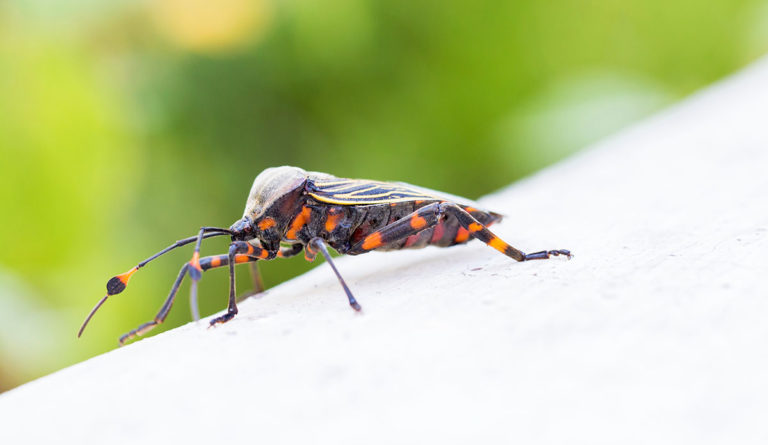Love Bites
A qualitative study provided insight into the challenges Chagas disease patients face, and lessons for improving screening and care.

Read Time: 4 minutes
Published:
Ever gotten a love bite? A little mark left from a more…passionate kiss? Triatomine bugs have been branded ‘kissing bugs’ due to the little red marks left behind after their bites. These intimate insects live in 30 U.S. states, and they are the main carriers of the parasites that cause Chagas disease. Chagas disease is the most prevalent neglected tropical disease worldwide. A majority of the 300,000 Chagas patients in the U.S. are immigrants from Latin America.
Chagas has no obvious symptoms during its early stages. Because of this, when someone in Latin America with Chagas moves to the U.S., they don’t know they’re carrying a disease along with their luggage. As well, this disease is a lifelong infection if untreated. Treatment is a simple antiparasitic medication that needs to be taken for up to 2 months.
You might assume that treatment isn’t all that important for a disease without obvious acute symptoms. You’d be wrong. The parasites make their way into the heart and can cause swelling over time, reducing its ability to pump blood. Heart failure is the most common chronic outcome for patients. One in three people infected with Chagas develop serious complications that damage their heart, digestive, and nervous system.
In a qualitative study, Colin Forsyth and team interviewed 50 people living with Chagas in Los Angeles, the city with the highest rates of Chagas in the U.S. The goal was to better understand the challenges infected individuals face. All participants were born in Central America, South America, or Mexico and received care at the Center for Excellence for Chagas Disease. Participants answered questions about accessibility to healthcare, strategies for coping with their illness, personal knowledge about Chagas, and perceptions of the disease within their communities and among providers.
Chagas is a disease of poverty. Kissing bugs infiltrate houses built of poor quality—unsealed cracks in roofs, windows, walls, and doors. Fixing housing issues sometimes cost more than what people can afford. Thus, people living in poverty have higher chances of infection. In interviews, respondents mentioned living in poorly constructed housing before immigrating, putting them at risk.
One participant mentioned feeling like, “the sky is falling, I’m going to leave my daughter behind.”
Participants had difficulty finding and maintaining treatment for infection. A majority of respondents found language barriers the most difficult aspect of adjusting to life in the U.S., causing anxiety around healthcare settings. Most participants reported struggling to get appointments and communicate with American doctors about Chagas.
As a neglected tropical disease, Chagas receives little attention or investment in Latin America and even less in the U.S. Few physicians are aware or trained in screening or treatment. Of the 300,000 cases in the United States, less than 1% of those infected receive treatment. Ninety-nine percent are at risk of long-term illness.
Further, the lack of general knowledge about Chagas causes stress and fear among patients. One participant mentioned, “I’m always in a panic that the larvae will grow in my blood—It’s always in my thoughts. Because once this illness is advanced there’s no cure.” Respondents also mentioned that they feared disclosing their illness to employers for fear of losing their jobs.
The researchers explain that participants’ physical ailments were closely woven into their emotional pains. Participants mentioned not wanting to worry about this unpredictable and potentially fatal disease. Patients live with the reality that their condition could worsen at any moment and they may not see it coming. One participant mentioned feeling like, “the sky is falling, I’m going to leave my daughter behind.”
Not only is better screening needed, but also better care for Latinx immigrants. The study authors mention that greater visibility for Chagas is needed, but warn that anti-immigrant sentiments could heighten. Increased awareness coupled with compassion are important to bettering care.
And, if you find yourself with a six-legged admirer and love bites, go see your doctor.
Photo via Getty Images



